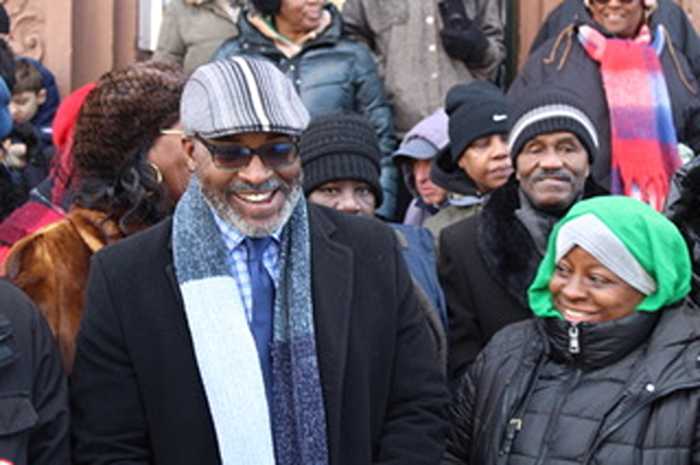State Supreme Court says gay public employees’ partnerships must be treated as marriages
The Alaska Supreme Court issued a unanimous ruling on October 28 finding that public employees with same-sex partners are entitled to the same employee benefits as those with legal spouses. The decision was based on the Alaska Constitution’s version of the Equal Protection Clause, which that court has previously held to be broader and more protective of individual rights than the corresponding federal provision.
However, the court also stated that such benefit equality might also be required under the federal Constitution, though such conclusion was not necessary to settle this case.
The ruling came in a case filed in 1999 by the Alaska Civil Liberties Union on behalf of nine public employees and their partners. They claimed that the state’s employee benefits program and that of the city of Anchorage violated the requirement in the Alaska Constitution that citizens be afforded “equal rights, opportunities, and protection under the law.” This language goes further than the U.S. Constitution, which guarantees only “equal protection of the laws.”
The plaintiffs did not challenge the state marriage amendment, enacted shortly before their suit, which provides that only marriages between one man and one woman are valid in Alaska. Instead, they argued that the existence of the marriage amendment actually supported their equal benefits claim, since it explicitly denied gay couples the protections afforded to straight couples by marriage.
The state tried to use the argument that state and local governments have invoked elsewhere with some success, claiming that it was distinguishing between married and unmarried employees and thus not discriminating on the basis of sexual orientation, because employees with unmarried opposite-sex partners are also denied benefits. In light of the Marriage Amendment, however, the court found this argument invalid.
Writing for the court, Justice Robert L. Eastaugh quoted from the U.S. Supreme Court’s 2003 decision in the Lawrence v. Texas sodomy case that “it is the duty of courts ‘to define the liberty of all, not to mandate [their] own moral code.’” The court held that there was no inconsistency between banning same-sex marriage, on the one hand, and finding that same-sex partners of state employees are entitled to equal benefits coverage, on the other, because the plaintiffs were not challenging the denial of marriage, just the denial of benefits. Unlike some other state marriage amendments, Alaska’s does not aim to broadly deny gay and lesbian couples all “legal incidents of marriage.”
The court’s decision implied, without actually stating, that if the marriage amendment had not been enacted in Alaska, same-sex couples might have had a good argument for entitlement to full marriage rights under the state Constitution. It treated the exclusion from marriage enacted as a narrow exception to the general equality requirement of the state Constitution.
The state advanced three principal arguments to justify the exclusion of benefits to same-sex couples—cost, administrative difficulty, and an interest in promoting traditional marriage. While conceding that all three of these are legitimate interests of the state, the court nonetheless found that they could not justify the exclusion.
Noting that the aim of containing costs and the goal of promoting marriage were in obvious conflict, the court found that the real issue in terms of expense was to make certain that benefits were extended only to those in truly close relationships with public employees. Same-sex domestic partners’ relationships are just as close as spousal relationships, the court found.
The court dismissed the administrative concern, noting that many state, municipalities, and businesses have solved that problem.
Most significantly, the court rejected the argument that excluding gay couples from benefits coverage would advance the state’s goal of promoting marriage, pointing out that there was no convincing argument that more people would get married because gays denied benefits. The only Alaskans so motivated, in fact, would be gay couples denied benefits who might consider sham marriages to receive what was denied them.
Because this ruling was an appeal from a lower court’s summary judgment against the plaintiffs, the court invited briefs from both parties on how the benefits programs could be adjusted to remedy their constitutional flaw.
gaycitynews.com

































